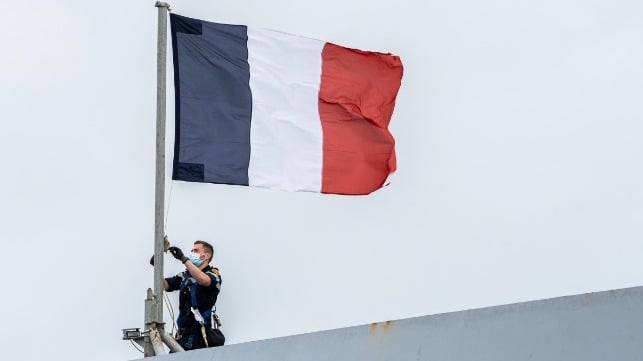France Reacts With Anger to News of U.S.-Australia Submarine Deal

The French government has reacted with profound anger to news that the Biden administration and the United Kingdom will be helping Australia to build a nuclear-powered submarine program.
The newly-announced deal is the first of its kind since the U.S. began sharing nuclear propulsion technology with Britain in the 1950s, and it is a watershed moment for cooperation among the three former members of the British Empire. Australia stands to benefit from an increase in capability: nuclear-powered subs have more range, more capacity and less noise than conventionally-powered designs, and the technology is closely guarded by the handful of nations that possess it. For the United States, the agreement strengthens a key ally in the Indo-Pacific at a time of rising tensions with China.
However, the deal undermines French interests, in two important ways. First, it means the cancelation of an existing $65 billion submarine deal between France's Naval Group and the Australian government; and second, French diplomats say that they were blindsided because the deal was negotiated in secret - a clear snub, given France's long history as an ally of the United States and its extensive presence in the Indo-Pacific.
“This is not done between allies,” said Jean-Yves Le Drian in an interview Thursday. "It's a stab in the back. This unilateral, brutal, unpredictable decision looks a lot like what Trump would do."

that matters most
Get the latest maritime news delivered to your inbox daily.
In a twist of irony, the announcement came just before a celebration of the 240th anniversary of the Battle of the Chesapeake. The battle is a symbol of France's alliance with the United States: on September 5, 1781, the French Navy defeated Royal Navy forces off Yorktown, Virginia, cutting off the port's British garrison from resupply or escape. This was an essential contribution to Gen. George Washington's campaign to capture the port, which led to the surrender of about 7,000 British troops and the end of the American Revolutionary War.
The French Embassy in Washington had planned a gala on Friday night to commemorate the battle and celebrate French ties with America. A French Navy frigate had been dispatched to the Port of Baltimore to support the celebrations, and the chief of staff of the French Navy, Adm. Pierre Vandier, had flown to Washington to attend. In a sign of France's displeasure, he has been recalled home, and the gala will not happen, officials told The New York Times.
